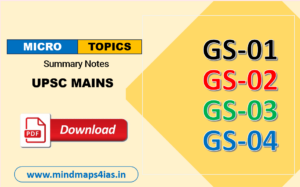- Source – The Hindu
- Link – https://www.thehindu.com/opinion/op-ed/india-and-the-managed-care-promise/article68233395.ece
- Syllabus – GS Paper 02
- Topic – Issues Relating to Development and Management of Social Sector/Services relating to Health
What is the issue?
The article discusses how health insurance and healthcare provision are merging into managed care organizations (MCOs) in India, similar to the U.S., and explores whether this model can help extend universal health care in India.
Evolution of MCOs in the United States:
- Managed Care Organisations (MCOs) is a healthcare chain in South India announced its entry into comprehensive health insurance, combining insurance and healthcare provision under one roof, akin to the U.S. managed care organisation (MCO) model.
- This MCOs approach aims to control costs and improve health outcomes.
- For example, a large healthcare chain in South India recently started offering comprehensive health insurance alongside its healthcare services.
- Managed Care Organizations (MCOs) in the U.S. began as a response to rising healthcare costs in the 1970s.
- They combine insurance and healthcare provision, focus on preventative care, and aim to control costs with a fixed premium for enrollees.
Evolution of MCOs in India:
- The first public commercial health insurance emerged in the 1980s, focusing on indemnity insurance and covering hospitalization costs.
- The market for outpatient consultations is valued at nearly $26 billion.
- Health insurance has lagged behind life and general insurance, facing lack of innovation and high operational costs.
- According to Thomas (2011), health insurance has played a secondary role to other forms of insurance, with persistent operational inefficiencies and high costs.
What are the Challenges in India?
- The Indian health insurance sector faces several challenges.
- There is a lack of natural incentives for cost control, with no incentives for consumer-driven cost management.
- The target demographic primarily focuses on the urban, well-off segment, neglecting broader demographics.
- Informality in outpatient practices is widespread, complicating efforts to standardize and regulate care.
- The absence of accepted clinical protocols hampers the quality and consistency of care.
- Economic viability is another issue, as unprofitable operations and unaffordable premiums hinder sustainable growth.
- Despite the potential, private initiatives have a limited impact on Universal Health Coverage (UHC) without public support.
- Additionally, health insurers have insufficient control over patient journeys before hospitalization, which affects early interventions and cost management.
What does the NITI Aayog report suggest?
- Outpatient Care Scheme: Endorses an outpatient care insurance scheme based on a subscription model.
- Cost Savings: Projected to generate cost savings by better integrating care services.
- Consolidation of Practices: Promotes consolidation of healthcare practices and streamlining management protocols.
- Preventive Care Focus: Aims to embed a preventive care focus within the private sector, suggesting a sustainable solution to outpatient care issues long-term.
How could MCOs fit into broader health initiatives?
- Pilot Basis Integration: Integrate MCOs into broader health initiatives on a small scale and pilot basis to assess effectiveness.
- Support from Ayushman Bharat Mission: Incentivize the establishment of MCOs in underserved areas, serving beneficiaries of the Pradhan Mantri Jan Arogya Yojana (PMJAY) and private clients.
- Expanding Coverage: As the self-paying client base grows, MCOs could increase awareness and reach, contributing to the broad objectives of universal health coverage.
















